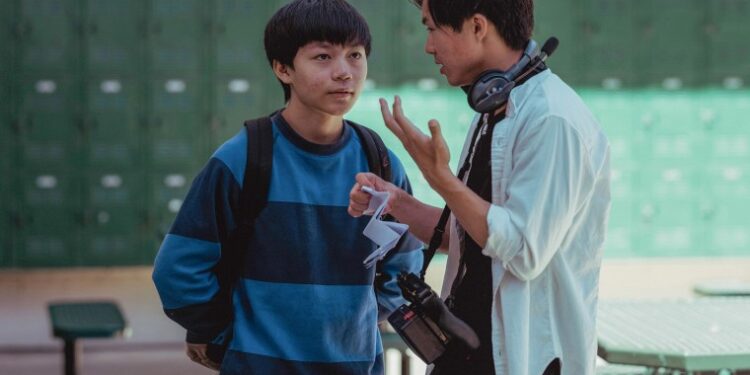A new film delves into feeling alienated in the Myspace era as an Asian American teen, and it doesn’t help that your immigrant family can’t help with cultural and social navigation.
“Didi,” which opens in select theaters Friday, follows Bay Area teen Chris Wang, a Taiwanese American kid played by Izaac Wang. He’s seeking belonging and acceptance from school peers and the local skate scene, and his social struggles in part touch on a common experience among kids of immigrants, Oscar-nominated director Sean Wang said. Without parents who can usher him into American culture, Chris is left contending with an unspoken cultural gap between him and the rest of their peers.
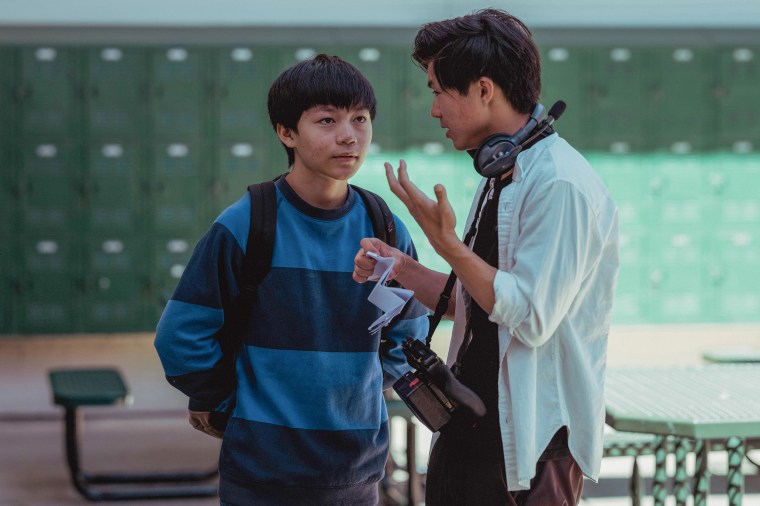
“Your parents are immigrants and they’re not like ‘OK, now listen to the Rolling Stones.’ They didn’t show me the Beatles but people were talking about the Beatles … My parents didn’t show me ‘Jaws’,” Wang said. “I had to go watch that myself because I clearly needed to figure this cultural stuff out. And I think that’s what I wanted to capture in the movie.” In the film, angsty teen Chris — affectionately called “Didi,” which translates to “little brother” in Chinese, by his family members and “Wang Wang” by friends — enters the nascent stages of adolescence in the last month before high school. There’s a cultural gulf between Chris and his immigrant mother, and his father is noticeably absent, away on business abroad. He’s thrown into the era of early Facebook and the Myspace top 8 all on his own. And it’s hard. His friendships change as his buddies treat him like an afterthought, he’s unsure of how to handle interactions with his crush, Madi, and life in his immigrant household is tense. Chris becomes plagued with loneliness and a lack of self-confidence. He attempts to seek community with other skaters, but his insecurities only lead him to more severed relationships.
“everyoen hates me and I have no freinds left,” he writes at one point to famed AIM chatbot SmarterChild.
At times, Chris’ social woes are amplified by the lack of cultural references he has. During some of his interactions with Madi, he’s left scrambling to read up on movies she enjoys or brush off his cluelessness with humor. The semi-autobiographical film hits on a familiar emotion for Wang.
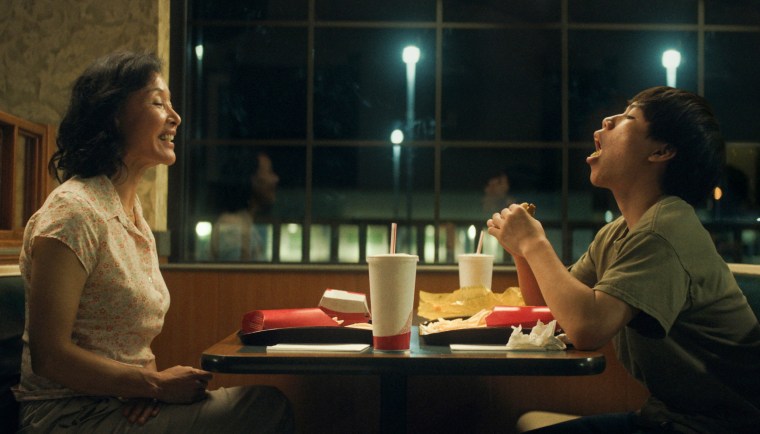
“People were like, ‘Isn’t it interesting that he’s like the filmmaker kid and hasn’t seen these movies?’” Wang recalled his peers saying of him.
The time period of the film is also a factor into Chris’ loneliness. Wang explained that in the 2008 cultural landscape, one dominated by the pop punk scene and MTV, Asian Americans barely had any cultural currency.
“You’re surrounded by people who look like you but the culture says you’re not cool. Society says you’re not cool,” Wang said. “So what does that do to your sense of self as a 13-year-old Asian kid? You’re like, ‘OK, well, I guess they’re right.”
Wang said that while the film subtly conveys the idea, a deleted scene gets at the era’s desert of Asian American representation.
“There was actually a scene that we ended up cutting, and it was the kids basically talking about that,” Wang said. “They’re like, ‘Name one cool Asian.’ They couldn’t think of anyone. And they were like, ‘I don’t know. Tila Tequila?’ She was like that one Asian representation back then.”
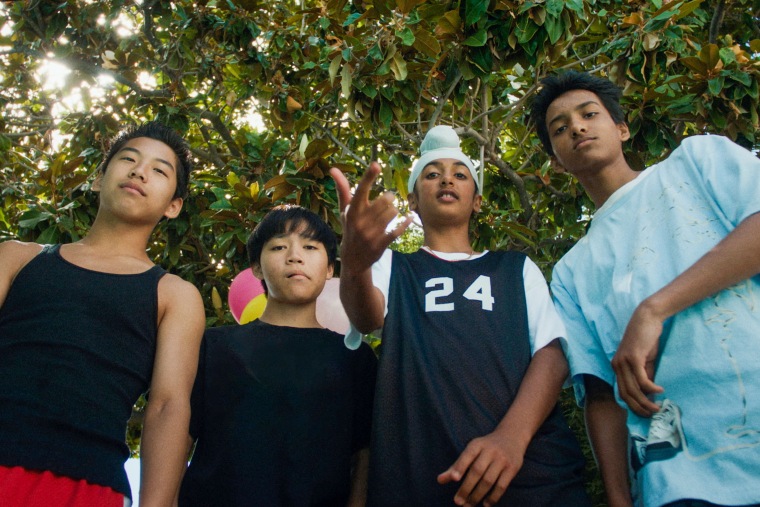
Being around other Asian American families still doesn’t shield from those feelings of “otherness,” Wang explained.
“Growing up with a multicultural community, I still felt that shame,” Wang said. “I remember back then people would say to me, ‘Dude, I don’t even see you as Asian.’ Those are all ‘compliments.’ … The shame — you realize how it’s a little insidious. You don’t even realize you’re feeling it. And it’s a little bit of that cultural erasure.”
Some of the most powerful moments in the film follow Chris’ relationship with his mother Chungsing, a gentle spirit with creative aspirations, played by Joan Chen. There’s no micromanaging Chris’ teen life, and yet, he still oozes embarrassment when she’s around. Wang said that Chungsing mirrors many real-life Asian American parents he saw growing up who bucked the stereotypical “Tiger mom” trope.
“I wanted to try to showcase the flip side of the coin, which was immigrant mothers … that were a little bit more soft spoken and sensitive and artistic and empathetic,” Wang said.
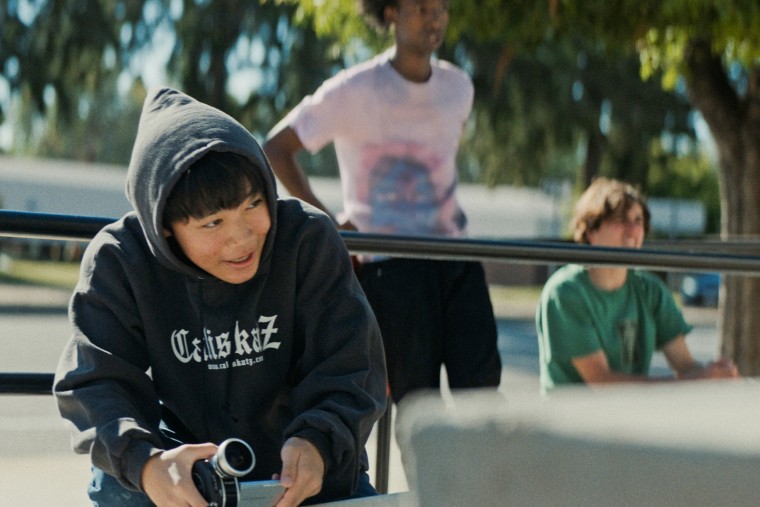
But just because a parent-child dynamic doesn’t involve strict rules or academic pressure, it doesn’t mean it’s not still one with conflict, he explained. Chris is still wracked with shame and embarrassment around his mom.
“The conflict that arises in the movie is not because Chris is not a model child, even though it’s part of it, but it’s that … immigrant chasm and the generational gap.”
The film, a yearslong project, prompted Wang to unpack his relationship with his own mother in an objective way, he said.
“Part of that whole experience was getting to know my parents in a way that was more deep and meaningful and closing the gap between mother and son,” he said. “Closing that gap for myself. It made the movie … a lot more rich and fulfilling.”

